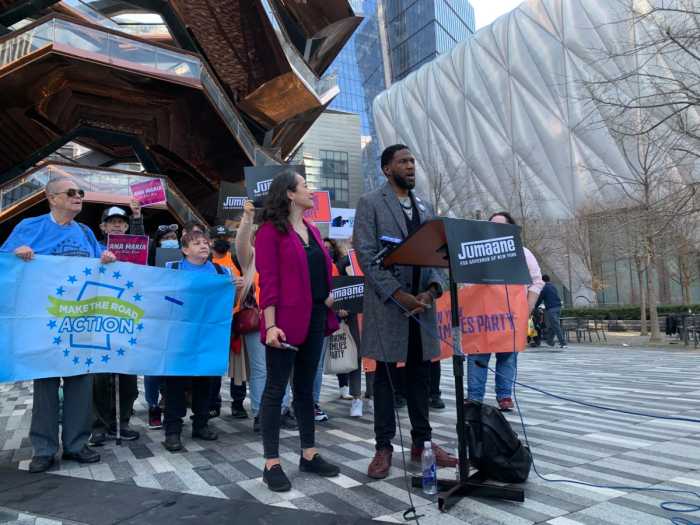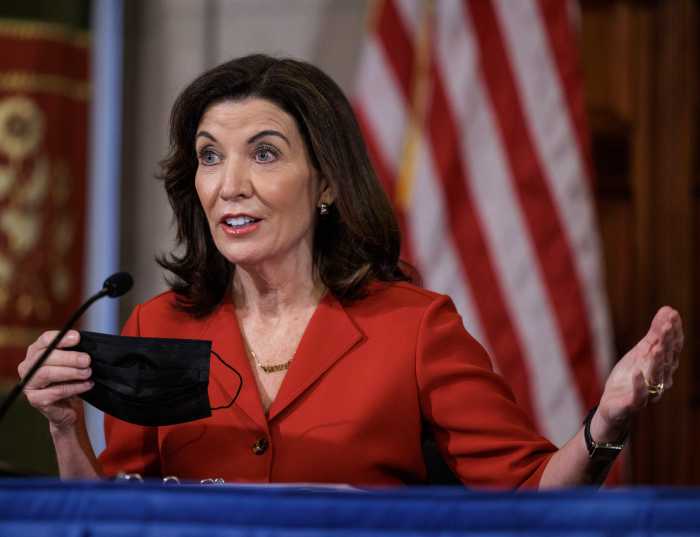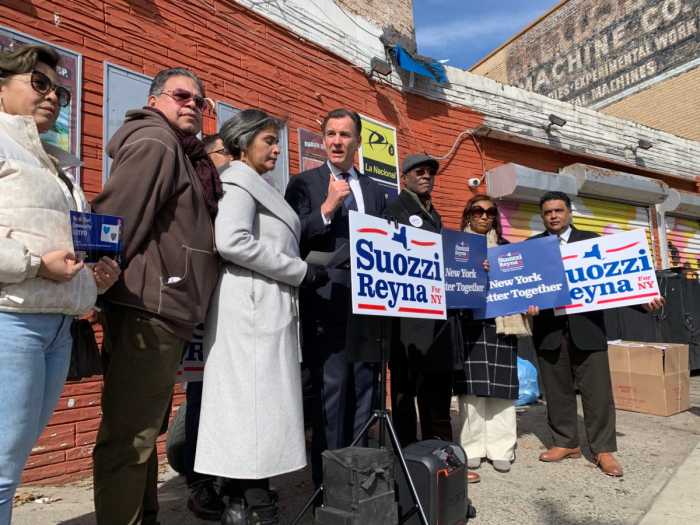Another week, another budget extension.
For the second week running, state lawmakers on Monday passed, and Governor Kathy Hochul signed, legislation to extend the state budget deadline for an additional seven days as negotiations over the state’s bail laws have continued to stall the spending plan, which was due April 1. The extender keeps the government funded and the state employees paid through next Monday as Hochul and state legislative leaders attempt to reach a budget deal.
Although the legislature missed it’s noon deadline for passing the extender, a spokesperson for state Comptroller Tom DiNapoli said they don’t expect it will delay the on-time payment of 83,000 state employees — something the comptroller warned could happen last week if the bill wasn’t done by on time.
The legislation also includes $9 million in funds for AIDs medication for health care providers intended to offset changes made to a Medicaid prescription drug program known as 340-b earlier this month, according to a state Senate spokesperson.
Assembly Speaker Carl Heastie, while speaking to reporters in the state Capitol before his chamber passed the extender, said debate over Hochul’s proposal to alter the bail laws by eliminating the “least restrictive standard” is still taking up most of the “oxygen” in the room.
“Most of the oxygen is still on discussing bail,” Heastie told reporters. “Ninety percent is bail.”
The speaker said so far “nothing” has been settled in the exhaustive conversations around altering the 2019 pretrial detention reforms, which eliminated cash bail for most low-level offenses, over the past week since the budget deadline was first pushed back. He also threw cold water on one report from over the weekend that suggested a deal on bail was close at hand.
“There’s no agreements. This is where we are, the governor’s made her points in what she’d like to see and we as a legislature responded. When I say has progress been made since the last time I was here with all of you? I’d say slightly, but there’s nothing even close to [an agreement],” Heastie said referring to the last time he spoke with reporters last week.
Brooklyn Assembly Member Latrice Walker (D), who on Sunday began a hunger strike in protest of Hochul’s proposed bail changes for the second year running, blasted the governor’s attempts to further rollback the law in a Monday statement.
“Governor Hochul has vowed to dismantle bail reform, eliminating the least restrictive means standard — with respect to bail — that has been etched into the law since the civil rights era,” Walker said. “Her argument is not based on data; it is based on politics. So, I have to do what I have to do to keep New York State from reversing the gains we’ve made under the bail reform laws.”
The other big sticking point for budget negotiations, Heastie said, is Hochul’s plan to build 800,000 new units of housing statewide over the next decade by setting regional production targets for each municipality across the state.
Hochul and state lawmakers, particularly those who represent suburban communities, are divided over the best method for building the most housing. The governor’s plan calls for overriding local zoning rules for localities that fail to meet their targets, while the legislature wants to increase the size of available funds to incentivize new development instead of punishing communities that fall short.
“I still think there’s issues in housing that have to be dealt with,” Heastie said. “Including things that the governor didn’t have in her executive budget but there’s indications that the houses want to see some discussions on.”
Some of the items progressive lawmakers want included in the budget, Heastie said, include tenant protections like so-called “Good Cause” eviction legislation and building new Mitchell-Lama-style affordable housing.
Once the governor and state legislative leaders reach a resolution on both bail and housing, the speaker said, then they’ll be able to tackle the myriad other issue making up the spending plan.
“I’d say housing is 1-B, bail is 1-A and housing is 1-B,” he said. “Then I think everything else, it’s an easier path on the other things in the budget.”



































